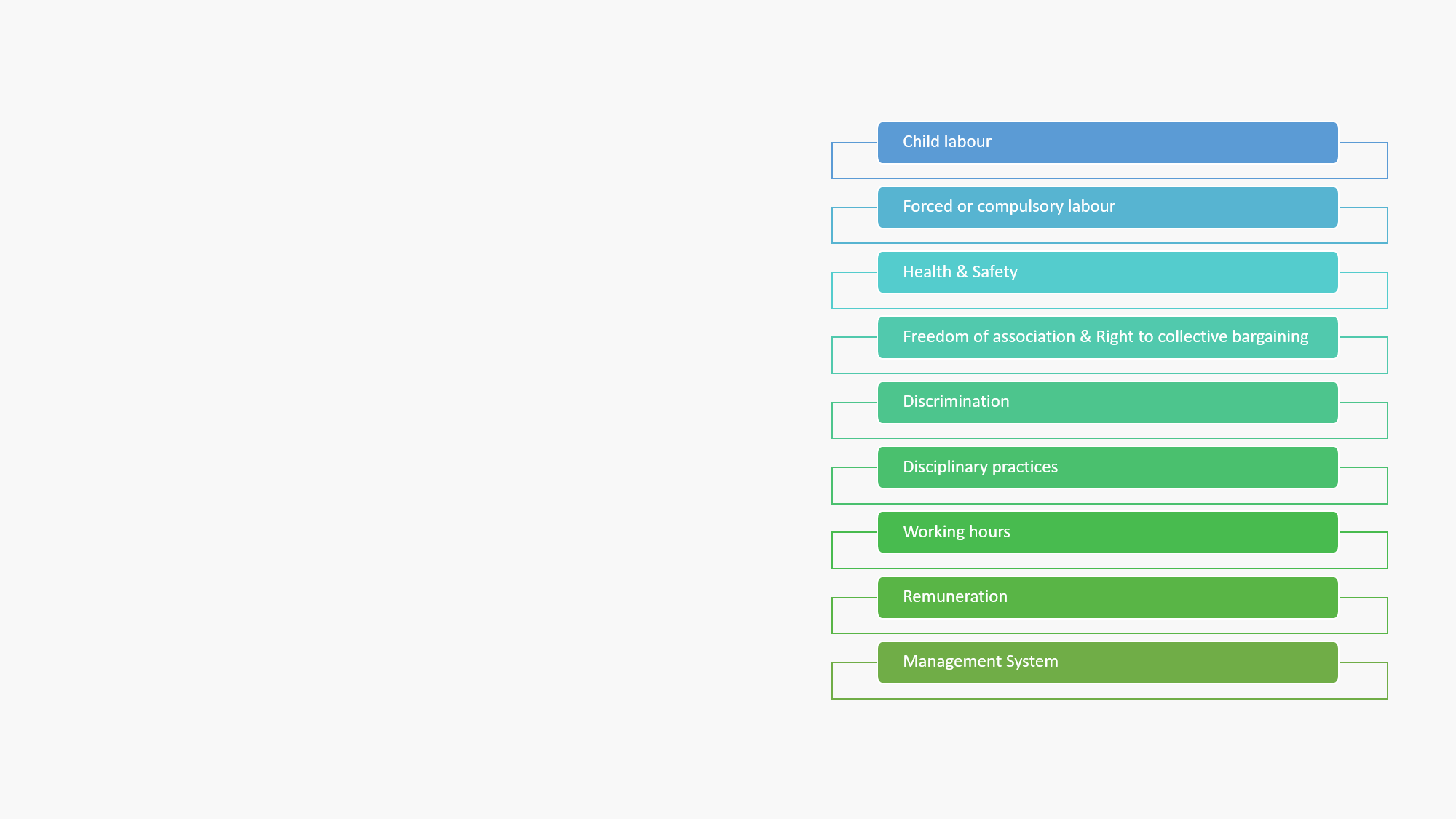
SA 8000
Consultation
Building Better Workplaces Through Social Accountability
What is SA8000?
SA8000 is an internationally recognized social certification standard that provides a framework for organizations to demonstrate their commitment to fair and ethical labor practices. It addresses issues such as child labor, forced labor, health and safety, freedom of association, discrimination, disciplinary practices, working hours, remuneration, and management systems. SA8000 is based on international human rights and labor norms, including the Universal Declaration of Human Rights and International Labour Organization (ILO) conventions. SA8000 is a valuable tool for organizations seeking to demonstrate their commitment to social responsibility and build a more sustainable and ethical business. SA8000 helps organizations demonstrate their commitment to ethical labor practices, fair treatment of workers, and safe working conditions.
Why SA8000? – Top Benefits
- Enhanced Reputation: SA8000 certification can improve an organization’s reputation and build trust with stakeholders, including workers, customers, and investors.
- Improved Supply Chain: It helps organizations ensure ethical and responsible practices throughout their supply chains.
- Increased Worker Engagement: SA8000 promotes a more engaged and motivated workforce by ensuring fair treatment and a safe working environment.
- Reduced Risks: By addressing potential social risks, SA8000 helps organizations mitigate legal and reputational risks associated with social non-compliance.
- Competitive Advantage: SA8000 certification can be a differentiator in the market, giving certified organizations a competitive edge, particularly in industries where social responsibility is a key concern.
Areas Covered by SA8000
- Child Labor – Prohibits child labor and requires remediation if found.
- Forced or Compulsory Labor – Ensures no forced labor or human trafficking.
- Health and Safety – Promotes a safe and healthy working environment.
- Freedom of Association and Right to Collective Bargaining – Supports workers’ rights to form unions.
- Discrimination – Prohibits discrimination based on race, gender, religion, etc.
- Disciplinary Practices – Prohibits abuse and inhumane treatment.
- Working Hours – Limits working hours in line with legal standards.
- Remuneration – Requires fair wages, at least meeting legal or industry standards.
- Management Systems – Ensures policies, training, and continuous improvement are in place.
Key Aspects of SA8000
- Voluntary Certification – SA8000 is a voluntary standard, meaning organizations can choose to implement it and seek third-party certification to demonstrate their commitment to social responsibility.
- Third-party Audits – Certification is achieved through independent audits conducted by accredited certification bodies.
- Continuous Improvement – The standard encourages a culture of continuous improvement in social performance through regular monitoring, review, and corrective actions.
Our Consultation includes
We offer end-to-end SA8000 consulting to support you throughout the certification journey:
- Gap Analysis – Identify current non-compliance areas
- Documentation & Policy Development – Create required HR and compliance frameworks
- Training & Capacity Building – Educate employees and management on SA8000 requirements
- Implementation Support – Set up monitoring, grievance systems, and recordkeeping
- Internal Audits & Pre-assessments – Ensure audit readiness before third-party review
- Corrective Action Planning – Address issues with practical, measurable solutions
Ready to Get SA8000 Certified?
Partner with us for expert SA8000 consulting and take the next step toward ethical excellence. Contact us today to schedule a free consultation or compliance assessment.
Any further questions?
Contact us to learn how we can help you achieve and maintain SA8000 certification.
